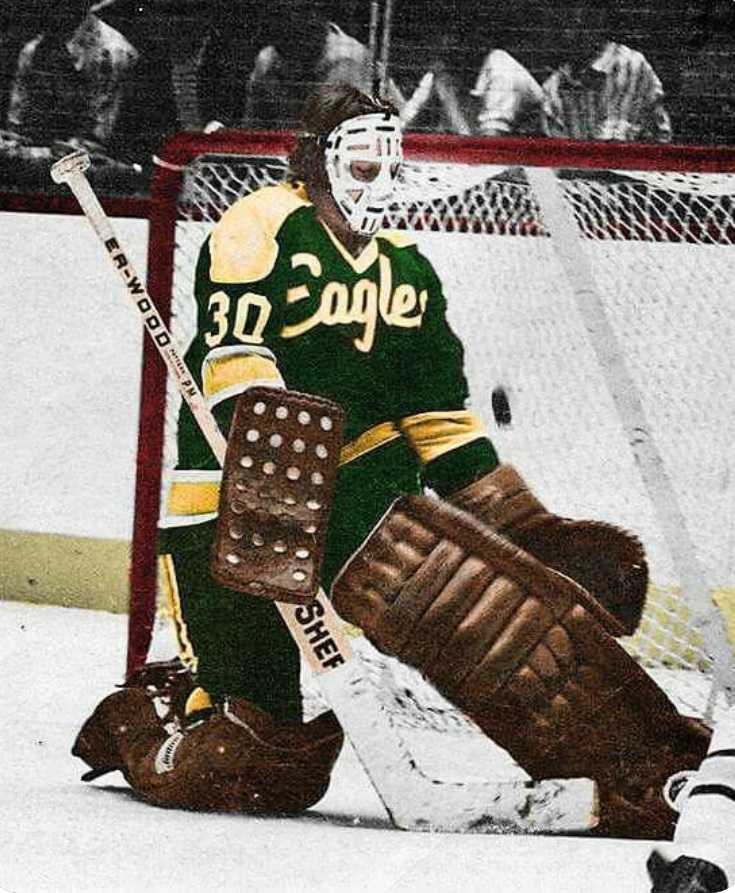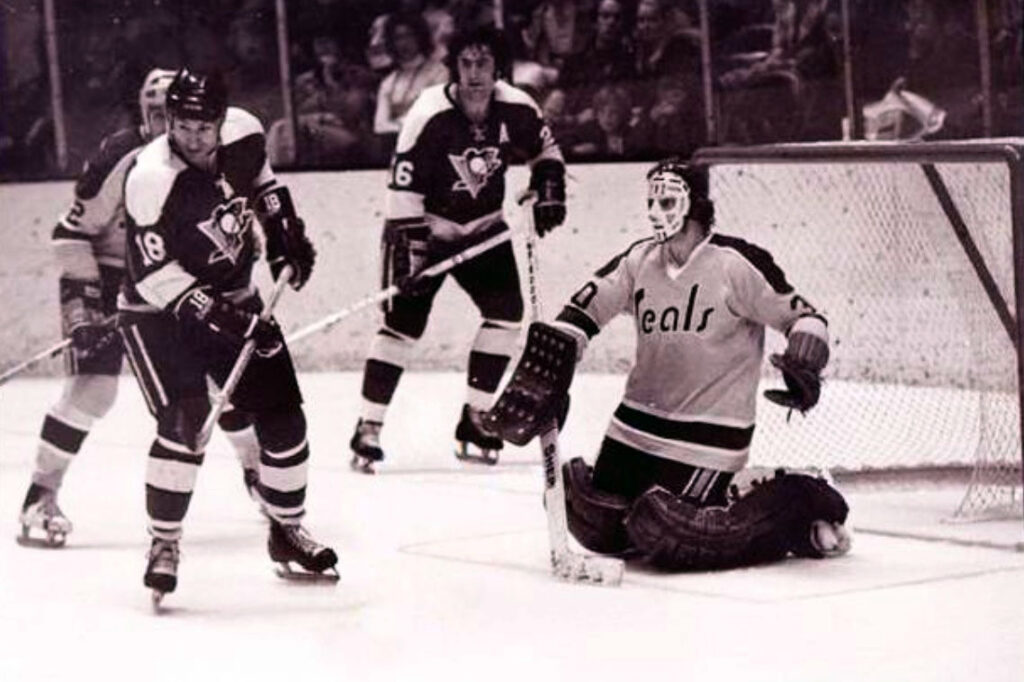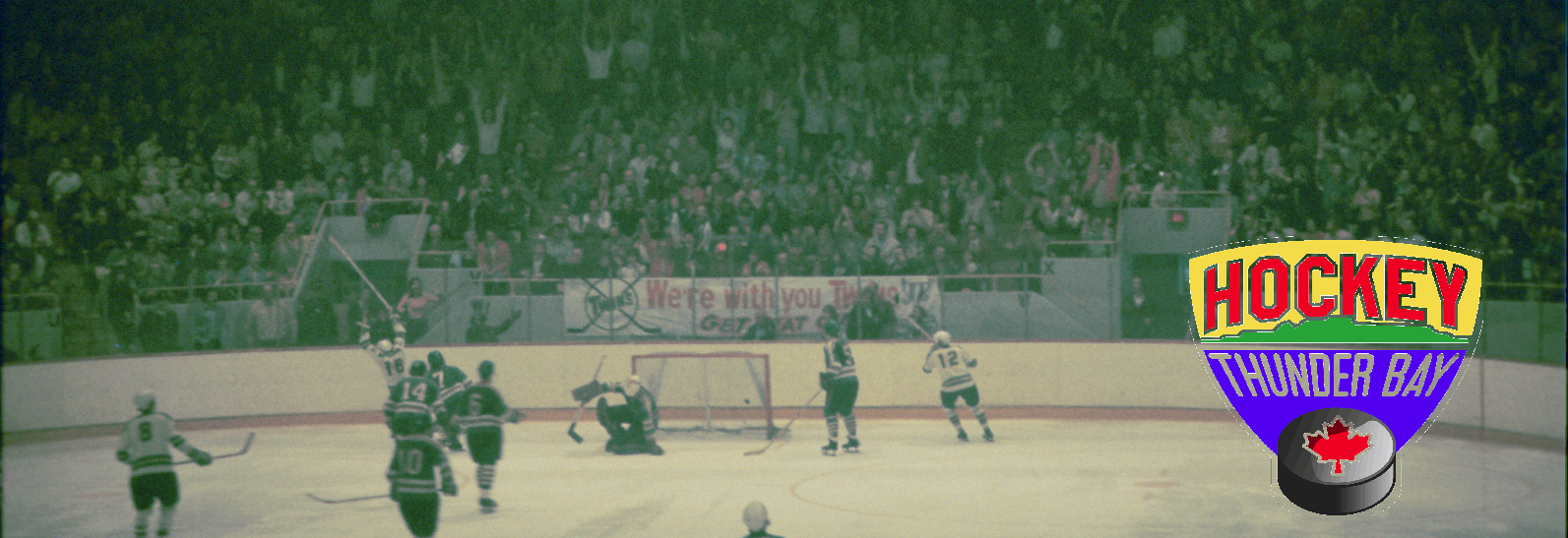 LIKE many growing up on the local outdoor rinks back in the day, there were those who held visions of strapping on the pads and competing to be the next Terry Sawchuk, Johnny Bower, Tony Esposito or Jacques Plante.
LIKE many growing up on the local outdoor rinks back in the day, there were those who held visions of strapping on the pads and competing to be the next Terry Sawchuk, Johnny Bower, Tony Esposito or Jacques Plante.
One such individual who went on to fulfill that vision was Ted Tucker.
He began his junior career as a 16-year-old goaltender in 1965 with coach Moe Irving’s Fort William Canadiens contingent.
With teammates like Murray Smith, Ron Busniuk, Brian DePiero, and the Margarit twins, Lynn and Laverne, in front of him, Tucker and the Canadiens went on to finish in top spot in the Thunder Bay Junior Hockey League standings.
They then won the TBJHL championship with a series decision over the Port Arthur North Stars, that the Habs took in five games.
After having their season end in the second round of the Memorial Cup playoffs at the hands of the Estevan Bruins, in a best-of-seven affair that went the distance, Tucker’s club would fall to the upstart Port Arthur Marr’s in the spring of 1967, who had made an impressive run all the way to the national final.
He was picked up by Port Arthur after they won locally and was along for the ride as the Marr’s eventually fell to the vaunted Toronto Marlboros.
With a well-connected pipeline to the Montreal Canadiens, under the watchful eye of local scout Mickey Hennessy, Tucker’s travel log saw him recruited to spend the next two campaigns with the powerful Montreal Jr. Canadiens.
There he was part of one of the best-ever Jr. squads ever assembled in his final year as Montreal overwhelmed the competition en route to winning the 1969 Memorial Cup.
Having star players like Gilbert Perreault and Rick Martin, two members in later years of the Buffalo Sabres’ famed ‘French Connection Line’, the Jr. Habs were a high-octane offense that rarely lost.
Venturing on to the professional ranks after that, Tucker joined the old Eastern Hockey League’s Clinton Comets, where he achieved further success.
Backstopping the Comets, his efforts between the pipes led Clinton to a first-place finish in both divisional play as well as overall throughout the EHL.
Piling up a league-best 46 wins, of which six were by shutout, Tucker went on to be named the league’s Rookie of the Year.
He was equally as solid in the postseason, tacking on a dozen more triumphs, featuring a couple more shutouts, as the Comets soared to the EHL Walker Cup crown.
Earning league first team all-star laurels twice early in his tenure, it led to a promotion with the Salt Lake Golden Eagles of the Western Hockey League.
While with Salt Lake, Tucker earned a call-up to the NHL with the California Golden Seals in December of 1973.
On Dec. 5 he made his NHL debut with the Seals against the Atlanta Flames, stopping all nine shots he faced in third period relief as part of a 3-3 tie.
Two nights later came his first league start, which was an eventual 4-3 victory for California over the Pittsburgh Penguins, in which he played the opening two frames.
His one NHL triumph then came January 11, 1974 as he outduelled fellow Fort William product Wayne Stephenson in a Golden Seals decision over the St. Louis Blues.
After making one final NHL appearance in a setback versus Vancouver, Tucker went on to play with fellow Lakehead resident Willie Trognitz as members of the Toledo Goaldiggers of the International Hockey League.
There it was time to hoist another trophy when Toledo topped the Saginaw Gears to win the IHL’s Turner Cup.
This featured a 39-save performance in the finale as the first-year expansion club won it all in their inaugural run on the ice.
Playing a few more years in the IHL with such other clubs as the Port Huron Flags, Dayton Gems and even Saginaw, he called it a career in 1981.
While performing admirably and winning championships at multiple levels throughout his career, Ted Tucker realized most hockey-playing youngster’s dreams of playing in the NHL, while personally fulfilling the ambitions that many of us could have only visualized on the frozen outdoor sheets in Thunder Bay.

Tucker was an NHL’s Golden Seal
 Goaltender Ted Tucker readies for a shot against the Pittsburgh Penguins in NHL action with the California Golden Seals back in December of 1973. Posting a winning record in nearly every league he played in, Tucker celebrated championships in both junior and as a pro. Photo: NHL.com.
Goaltender Ted Tucker readies for a shot against the Pittsburgh Penguins in NHL action with the California Golden Seals back in December of 1973. Posting a winning record in nearly every league he played in, Tucker celebrated championships in both junior and as a pro. Photo: NHL.com.
